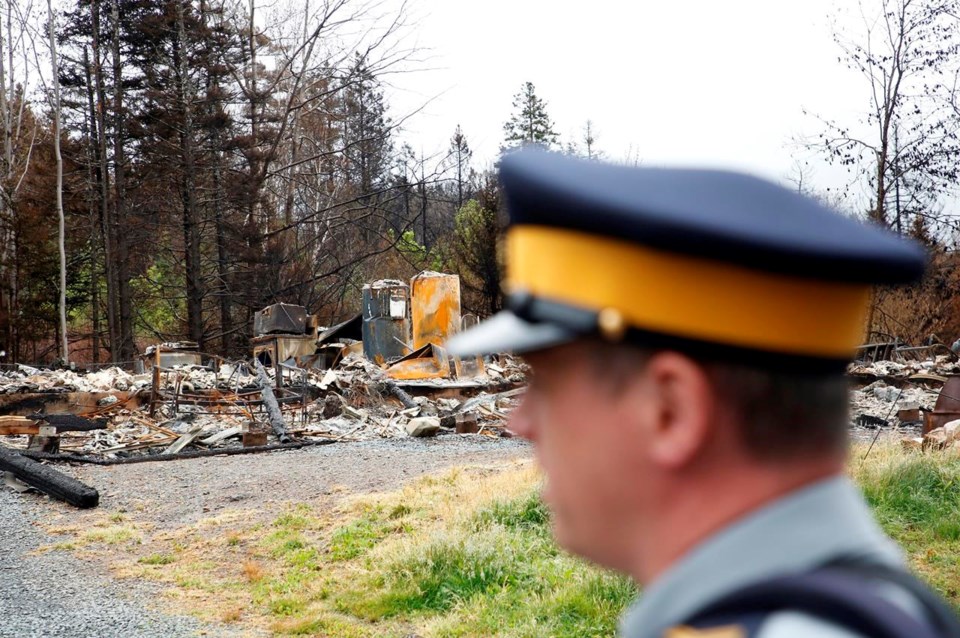HALIFAX — The mayor of Halifax says more evacuation orders will be lifted Friday for residents in subdivisions that sustained the most damage when a fast-moving wildfire broke out May 28 and quickly destroyed 150 homes.
Emergency alerts will be sent Friday explaining how access will be granted to various neighbourhoods in the Upper Tantallon and Hammonds Plains areas, Mike Savage told reporters.
"We remain committed to addressing community safety and to helping people regain what was lost," he said Thursday, describing the disaster as "the most devastating fire of our times."
"This last 10 days has been remarkably devastating to the whole community in a way that we haven't seen in a long time."
In all, more than 16,000 people were forced to flee their homes, but several evacuation orders have since been lifted for other subdivisions northwest of the city's downtown.
Though the fire was largely contained on Saturday, about 4,000 people were still waiting on Thursday to return to their homes. Most of those people were expected to be given approval to return home before Friday afternoon, but another group could expect to wait longer.
The Halifax Regional Municipality said residents who live within three smaller areas where the most damage was reported should be able to return home within the next 10 days. The municipality said it must first complete a review of infrastructure, install traffic controls and place fences around destroyed properties.
"Keep in mind, it's still early June," Savage said. "We need to be vigilant. We need to be careful because, as was seen across the country, wildfires are not going away."
The mayor also encouraged people to attend a benefit concert on Friday night in Halifax that will raise money for disaster relief.
Erica Fleck, division chief of emergency management, said the municipality would set up a so-called community hub for those who have lost their homes to speak with municipal staff. As well, she said the region has hired the humanitarian organization Team Rubicon, which will provide a team of 50 volunteers to help homeowners sift through their destroyed or badly damaged homes.
The Canadian Red Cross announced Thursday that as of 8 p.m. Atlantic time, residents subject to evacuation orders would no longer be able to register online for a one-time $500 emergency grant from the Nova Scotia government.
In southwestern Nova Scotia, the 235-square-kilometre Barrington Lake fire was being held in place Thursday by 170 firefighters and two helicopters. But officials said the fire remained out of control after it destroyed 60 homes and cottages, and another 150 structures.
"Although the fire is not yet under control, we continue to work hard and do not expect the fire to spread further," the Shelburne County East Emergency Management Organization said in a statement late Wednesday.
The organization issued a statement Thursday reminding residents that evacuation orders are not just recommendations.
"We acknowledge the frustration of community members, especially of those who have not yet been able to return to their properties and homes," the organization said. "However, to protect our community members and the wildfire investigation … we need to take a safety-first approach."
The organization said the evacuation zones remained dangerous because of oil spills from furnaces, downed power lines and leaking septic systems.
"We have been fortunate to report no fatalities or injuries from the wildfires and we would like to keep it this way," the statement said.
A major highway that runs along the province's southwest coast was partially reopened to traffic late Wednesday, allowing commercial traffic and health-care workers to use a section of Highway 103 that was closed when the Barrington Lake fire rapidly moved northward last week.
A provincewide ban on open fires remains in place. The fine for violations has been increased to $25,000.
Previously imposed restrictions on travel and activities in the province's woodlands have been lifted, except in Shelburne County and anywhere evacuation orders remain in place.
This report by The Canadian Press was first published June 8, 2023.
Michael MacDonald, The Canadian Press



